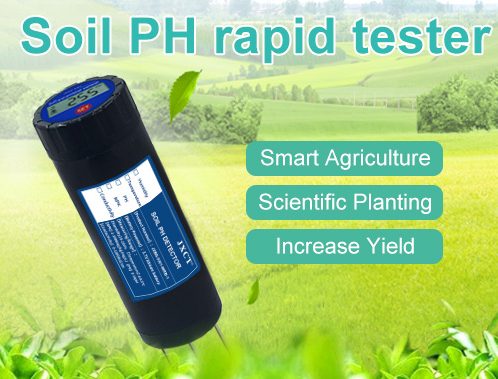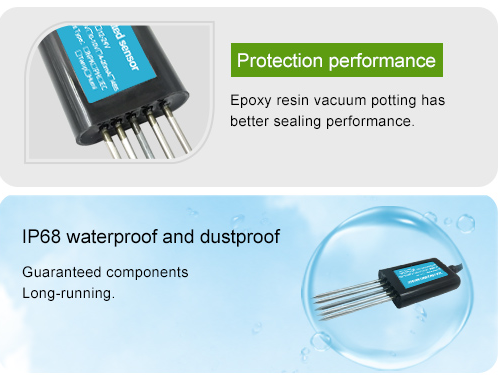Understanding Soil pH and its Importance in Agriculture
Soil pH, a measure of the acidity or alkalinity of the soil, plays a pivotal role in determining the availability of essential nutrients to plants. The pH scale ranges from 0 to 14, with 7 being neutral, values below 7 indicating acidic conditions, and values above 7 signifying alkaline conditions. Most crops thrive in slightly acidic to neutral soil, with a pH range of 6 to 7.5. When the soil pH deviates from this optimal range, it can lead to nutrient deficiencies, reduced microbial activity, and poor crop performance.
Traditionally, farmers relied on manual soil testing methods, which were time-consuming, labor-intensive, and often provided limited spatial and temporal data. However, with the advent of soil pH sensor, farmers can now obtain real-time, accurate, and site-specific information about their soil conditions, paving the way for precision agriculture.

Functionality of Soil pH Sensors
Soil pH sensor is a precision electronic device that accurately and efficiently measures the pH value of soil. These sensors are equipped with probes that are inserted into the soil, where they come into contact with the soil moisture and extract samples for pH analysis. The sensors utilize advanced electrochemical or optical techniques to determine the pH level, and the data is typically transmitted wirelessly to a central monitoring system or a smartphone application for real-time analysis.
Furthermore, some soil pH sensors are integrated with additional sensors to measure parameters such as soil moisture, temperature, and nutrient levels, providing farmers with comprehensive insights into their soil health. This multi-sensor approach enables farmers to make well-informed decisions regarding irrigation, fertilization, and crop selection based on the specific needs of their soil.
Benefits of Soil pH Sensors in Precision Farming
The integration of soil pH sensor in precision farming has brought forth a multitude of benefits that have transformed agricultural practices. Some of the key advantages include:

- Precision Management: Soil pH sensor enable farmers to precisely monitor and manage the pH levels of their soil, allowing for targeted and customized interventions to optimize crop growth and yield.
- Resource Efficiency: By providing real-time data on soil pH and other relevant parameters, these sensors facilitate efficient use of water, fertilizers, and other inputs, minimizing wastage and environmental impact.
- Enhanced Crop Performance: Maintaining the optimal soil pH level fosters better nutrient uptake by plants, leading to improved crop health, yield, and quality.
- Cost Savings: With the ability to make data-driven decisions, farmers can reduce input costs while maximizing the productivity of their land, resulting in significant cost savings over time.
- Sustainability: By promoting precision agriculture, soil pH sensors contribute to sustainable farming practices by minimizing the use of agrochemicals and reducing environmental degradation.
Future Implications and Innovations
As technology continues to advance, the future of soil pH sensor in agriculture holds promising prospects for further innovation and integration. Some potential developments on the horizon include:
Integration with Smart Farming Systems: Soil pH sensor will join in intelligent agricultural system. They will work with other sensors, drones and satellite imagery to give farmers a holistic view of agricultural operations.
Data Analytics and AI: We use the soil pH sensor data for advanced analysis and machine learning algorithms. This enables predictive insights for optimal soil management.
Miniaturization and Affordability: Continued research and development may lead to the miniaturization of soil pH sensors, making them more affordable and accessible to smallholder farmers, thereby democratizing precision farming.
Environmental Monitoring: Soil pH sensors may evolve to encompass broader environmental monitoring capabilities, such as detecting soil pollution, salinity levels, and erosion, contributing to overall land stewardship.
conclusion
Soil pH sensors have emerged as a game-changing technology in modern agriculture, empowering farmers with the tools to make informed, data-driven decisions for sustainable and productive farming practices. As sensors merge with precision farming systems, they play a key role in shaping the future of agriculture and changing environmental challenges.With the continuous adoption and advancement of soil pH sensors, the agricultural landscape is ready for transformation.